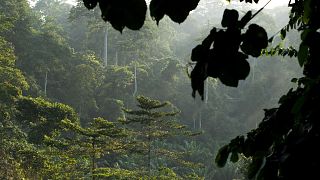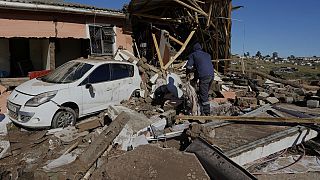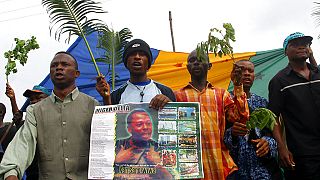Brazil
Pupy the elephant arrived at her new home in a sanctuary in Mato Grosso, Brazil, Friday from a zoo converted into an ecological park in Argentina’s capital, where she had spent 30 years in conditions criticized by activists.
In a 2,700-kilometer overland journey, the 35-year-old African elephant was transported via a large iron crate with thick bars strapped to a truck, a mission for which she had been trained for several months.
The truck was flanked by vans filled with caretakers and veterinarians. Pupy did not require sedation during the five-day journey to Elephant Sanctuary Brazil, the first refuge for elephants in Latin America, located in the municipality of Chapadas Dos Guimarães in Mato Gross state, Argentine authorities said.
Upon arriving at the sanctuary, her veterinary escorts opened the door for her, but Pupy was reluctant to leave the iron crate.
"Everything happens in her own time here. It will always be in the elephant's time. Here is a place of reception and care for these animals for the rest of their lives, and this starts from the transfer to Pupy's last days," said the sanctuary's director, Daniel Moura.
Pupy will remain in an outdoor shed while she begins to adapt to her new home, without rushing.
Five elephants are already enjoying the sanctuary
In 2016, Buenos Aires launched the transformation of its century-old, urban zoo in the Palermo neighborhood into an ecological park for the preservation of biodiversity and the conservation of native species.
As part of this process, more than 1,000 animals — including lions, tigers, bears, and apes — have been relocated to other countries where they enjoy better living conditions. Pupy, who arrived at the Palermo zoo in 1993, is the latest animal transferred from the Buenos Aires ecological park.
Five Asian elephants—including Mara, a former circus elephant who also ended up in the Argentinian zoo's enclosure—are already enjoying the Brazil Elephant Sanctuary.
Five years ago, she made the same highway trip to the refuge, where she now trudges at least 10 kilometers a day.
The Buenos Aires “Ecopark” will continue to house animals that cannot be transferred to another habitat due to age or logistical impossibility.











01:05
Zimbabwe to cull 50 elephants, distribute meat to locals
00:50
New documentary shines light on plight of pangolins, one of the world's most trafficked mamals
01:50
Sierra Leone: popular chimpanzee sanctuary under threat from encroachment
00:31
The Pride of Africa: Efforts underway to protect Africa's endangered grey crowned crane
01:07
New Brazil national football team coach Ancelotti finds his feet
01:45
Two Brazilian nuns go viral for beatboxing and dancing live on TV